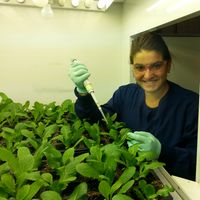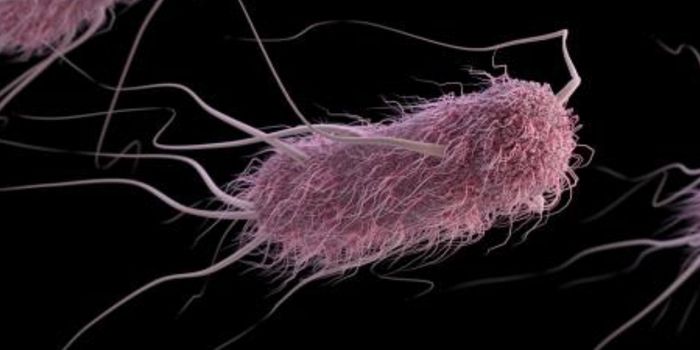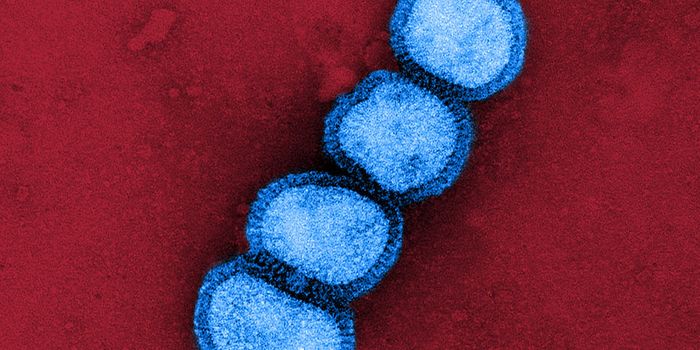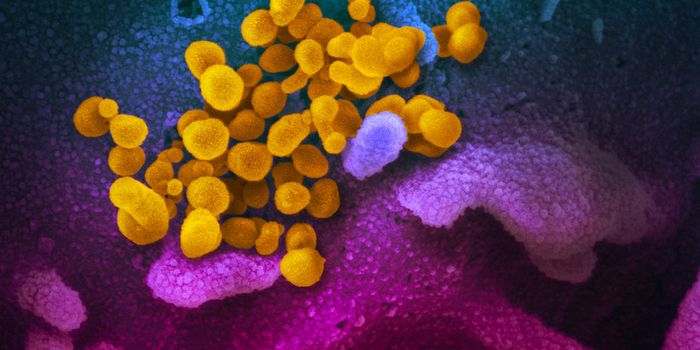Brachyspira pilosicoli: An Emerging Pathogen?
Brachyspira pilosicoli is a slow growing spirochete that was first isolated from a pig in the United Kingdom in 1980. Spirochetes are long and slender corkscrew-shaped bacteria which enable the bacteria to move by rotating in place.
Brachyspira pilosicoli was first isolated from a pig in the United Kingdom in 1980. The bacteria have since been found to colonize the intestinal tract of humans in some developing countries and have been associated with chronic conditions in immunocompromised individuals. Credit: LA Edwards
Some spirochete species cause human disease including Lyme and syphilis, while others are essential for the proper function of ruminants, such as cows, where they help to break down cellulose and other plant polysaccharides in the rumen. Brachyspira pilosicoli specifically has been associated with colitis, diarrhea, and poor growth rates in pigs and adult chickens.
Despite the high prevalence of Brachyspira pilosicoli colonization in certain human populations, there is a lack of uncertainty regarding the role of Brachyspira pilosicoli as a human pathogen. Identification of the bacterium requires specialized culture techniques as well as molecular-based technology that are only available in a few laboratories that undertake special diagnostic investigations.
The have been relatively few studies investigating the number of Brachyspira pilosicoli infections in humans. In one interesting human experimental study, a volunteer human drank cultures of Brachyspira pilosicoli isolated from an Australian Aboriginal child experiencing diarrhea. Examination of fecal samples revealed that the volunteer became heavily colonized by the bacteria and developed symptoms including abdominal pain, bloating, and headaches. Interestingly, the volunteer did not develop diarrhea and the bacteria could not be isolated from the blood stream. Treatment with oral metronidazole quickly removed the presence of the bacteria from the volunteer’s feces and symptoms ceased.
Brachyspira pilosicoli colonization in humans has been found to be associated with conditions including chronic diarrhea, rectal bleeding, nonspecific abdominal discomfort, and failure to thrive in children. The bacteria have also been isolated from the bloodstream of individuals with other chronic conditions including alcoholism and cancer.
Other studies have identified risk factors for infection in humans including drinking contaminated water, bathing in contaminated water, living in rural or peri-urban villages in developing countries, living in rural Australian Aboriginal communities, recent migration or travel from a developing country, male homosexuality, positive HIV status, contact with animals, and coinfection with Brachyspira aalborgi and/or intestinal protozoa.
Scientists encourage clinicians and microbiologists to consider Brachyspira pilosicoli in their differential diagnosis of human disease. It is also recommended that appropriate use and development of diagnostic protocols be applied for the identification of spirochete species in clinical specimens.
Sources: Clinical Microbiology Reviews, UC Berkley









